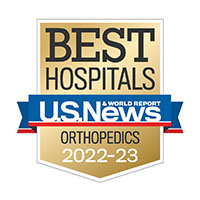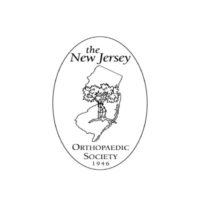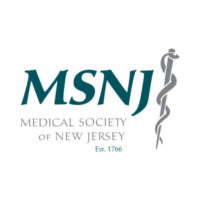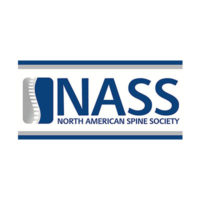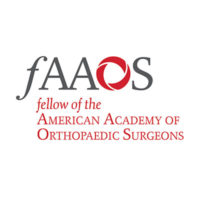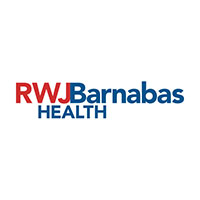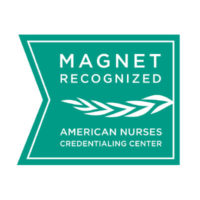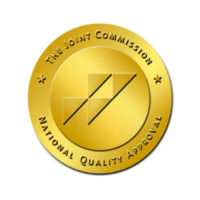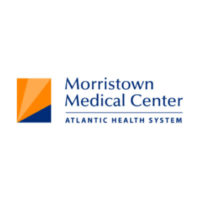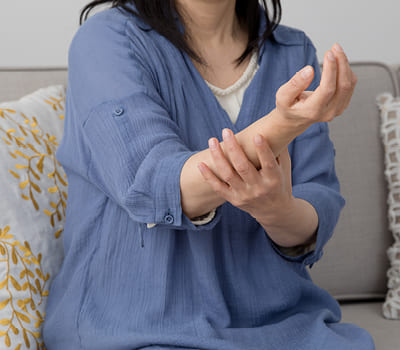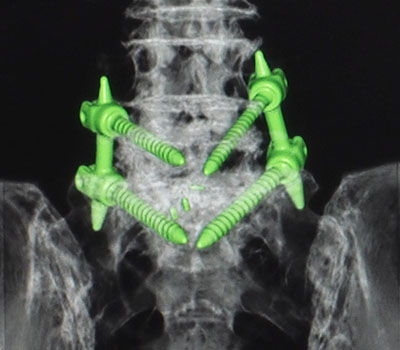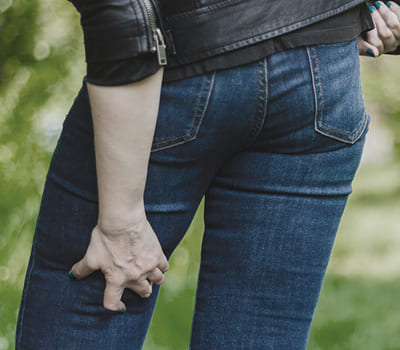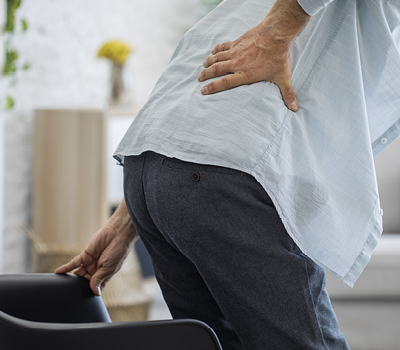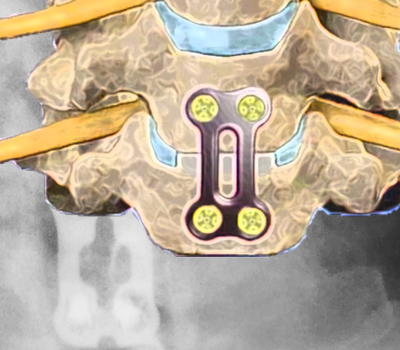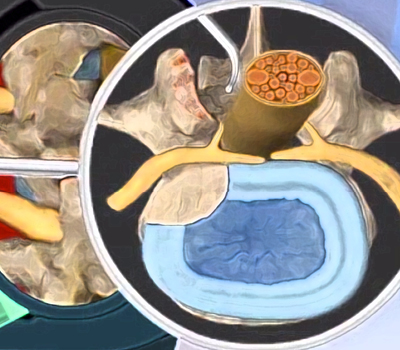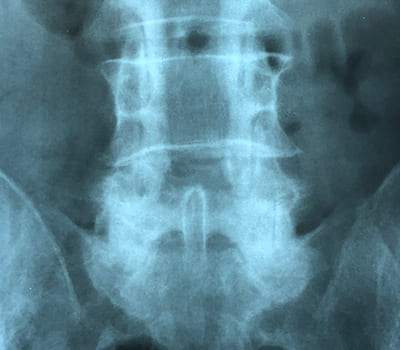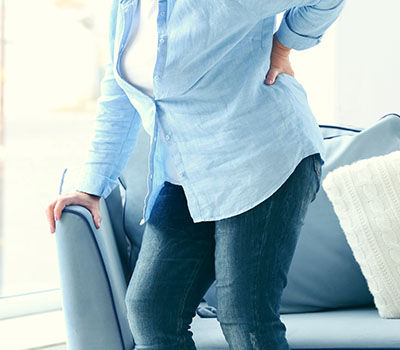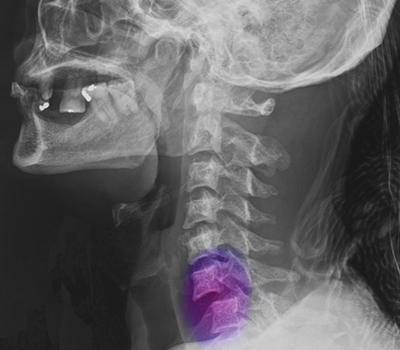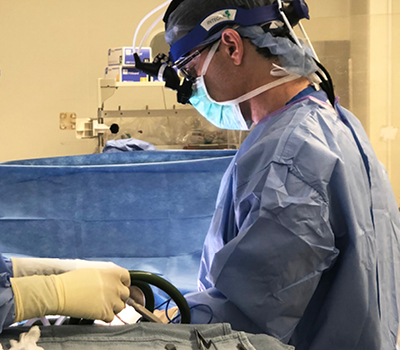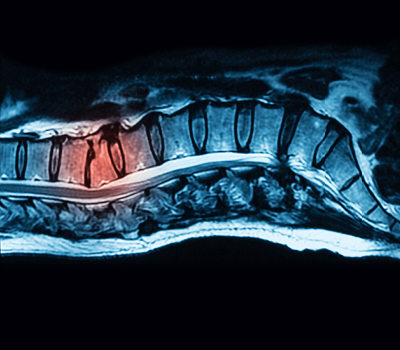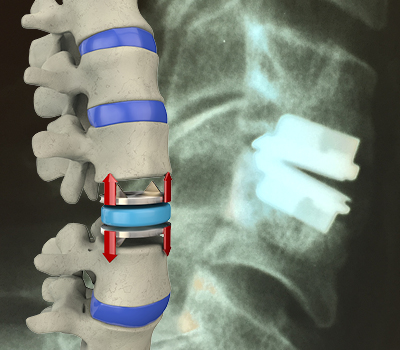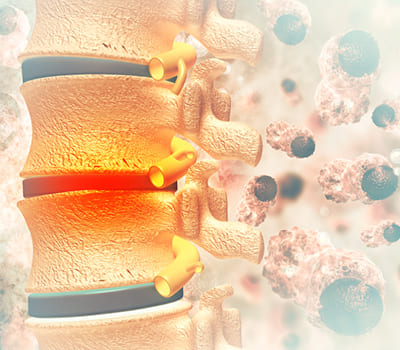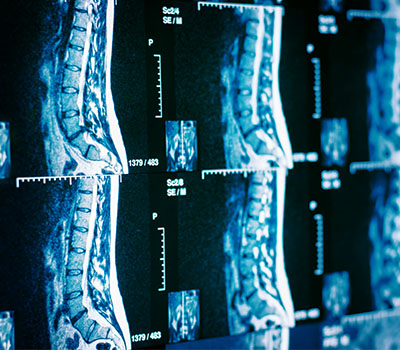LUMBAR DISC HERNIATION
HERNIATED DISC
Lumbar Herniated Disc
Q & A
What should I know about the lumbar spine?
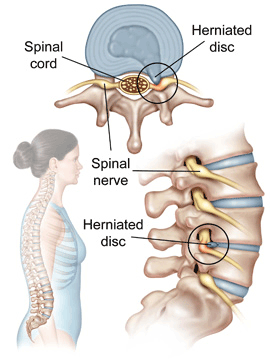 To understand sciatic nerve pain, it’s helpful to have a basic understanding of the lumbar and sacral spine anatomy. The lumbar spine is made up of five bones called vertebrae, which are numbered from top to bottom as L1 to L5. The sacral spine follows and includes the next three vertebrae numbered S1 to S3. The lumbar spinal nerves begin with nerve roots that branch from the spinal cord. Each is named for the vertebra immediately above; spinal nerve L4 exits the spinal canal below the lumbar vertebra L4.
To understand sciatic nerve pain, it’s helpful to have a basic understanding of the lumbar and sacral spine anatomy. The lumbar spine is made up of five bones called vertebrae, which are numbered from top to bottom as L1 to L5. The sacral spine follows and includes the next three vertebrae numbered S1 to S3. The lumbar spinal nerves begin with nerve roots that branch from the spinal cord. Each is named for the vertebra immediately above; spinal nerve L4 exits the spinal canal below the lumbar vertebra L4.
What are the causes of a lumbar disc herniation?
Symptoms of a herniated lumbar disc can occur in the lower back, hips, legs and buttocks. Patients typically experience one or a combination of the following:
- Discomfort or pain that radiates from the lower back, down one or both legs and possibly to the feet
- Constant shooting pain that may increase when moving or sitting
- Leg weakness
- Numbness and tingling in the leg or foot
- Limited range of motion
- Difficulty walking
- Problems with bladder or bowel control in severe cases
For a visual reference you can watch an animation of lumbar disc herniation.
Herniated Disc Lumbar
What are the causes of a lumbar disc herniation?
Herniated discs are usually caused by disc degeneration due to aging and most often occur in people who are 35 to 55. Sometimes trauma, heavy lifting or sudden twisting can cause a disc to suddenly rupture.
How is a lumbar disc herniation diagnosed?
Accurate diagnosis is the key to appropriate and effective treatment for your pain. Doctors Giordano and Nachwalter are highly experienced in diagnosing spinal disorders as well as providing both surgical and non-surgical care. During your consultation, your doctor will:
- Review your symptoms (such as where you have pain, weakness, and numbness) and what limitations these symptoms place on your everyday activities
- Perform a physical exam including an assessment of nerve function, muscle strength, response to sensory input (such as pressure and touch) and check reflexes
- Evaluate your medical history
- Order diagnostic tests such as x-rays, CT and MRI scans or review the results of scans you have already had
Your doctor will review treatment options once he has diagnosed your condition and determined the cause of your symptoms. He will review the risks and benefits of each option and assist you in deciding which one is best for you.
What are the treatments for a lumbar disc herniation?
Dr. Giordano and Dr. Nachwalter take a conservative approach to treatment of spinal conditions. They recommend surgery as a last resort when symptoms do not improve with non-surgical treatment. Treatment for a herniated lumbar disc may include:
- Modified activity
- Medication
- Steroid injections
- Physical therapy
- A surgical procedure such as Lumbar Discectomy.
Atlantic Spine Specialists
SPECIALTIES & CONDITIONS
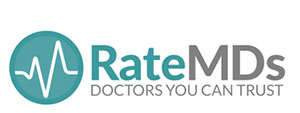 88 Reviews
88 Reviews
 120 Reviews
120 Reviews
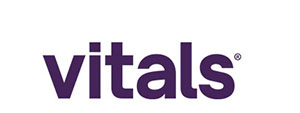 149 Reviews
149 Reviews
 4 Reviews
4 Reviews
